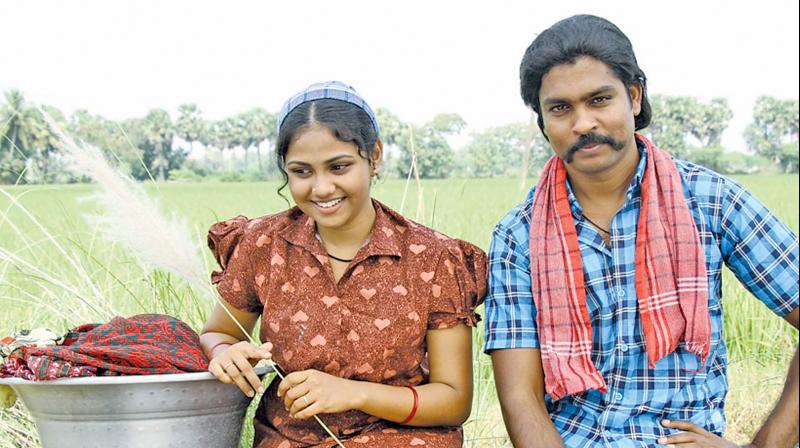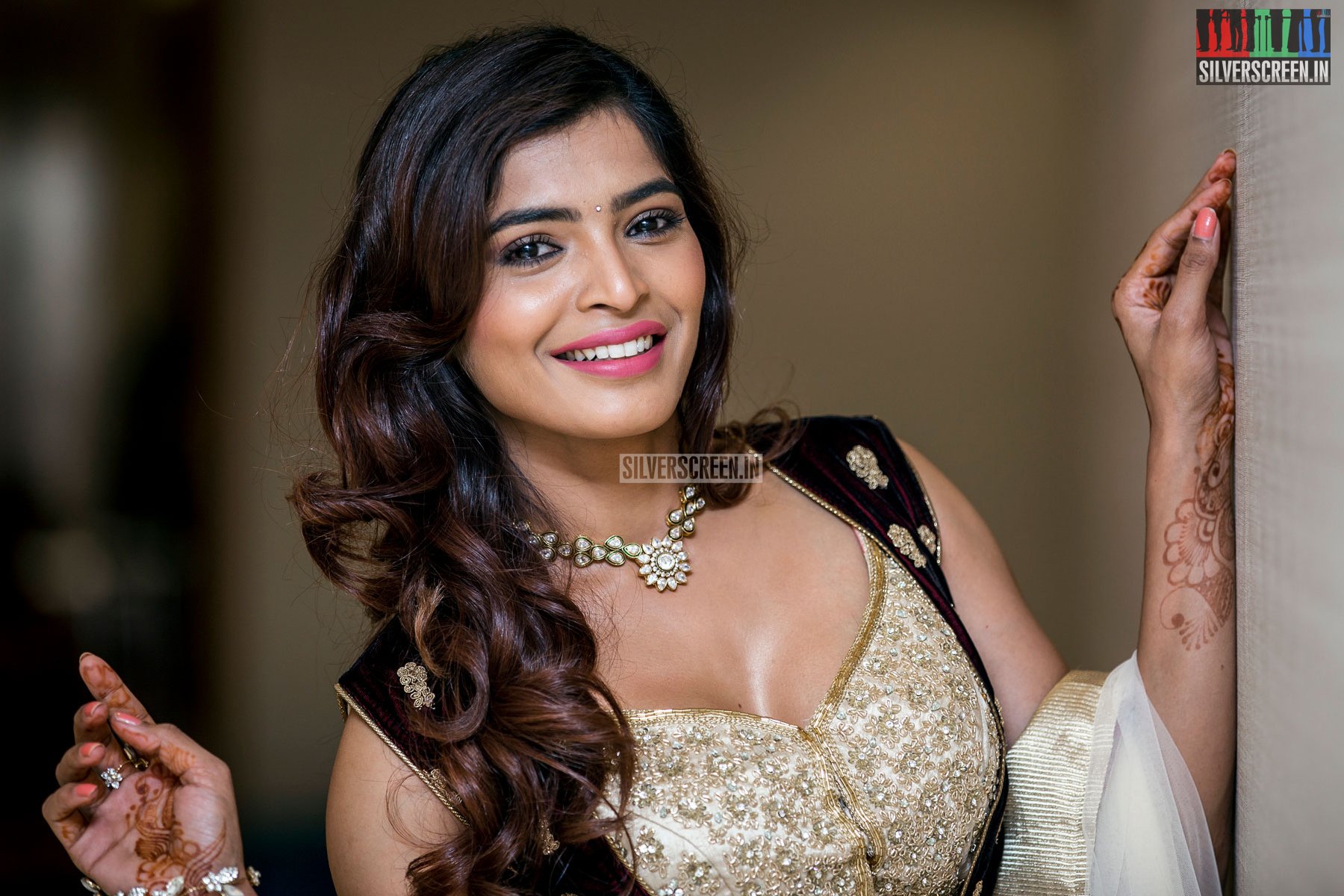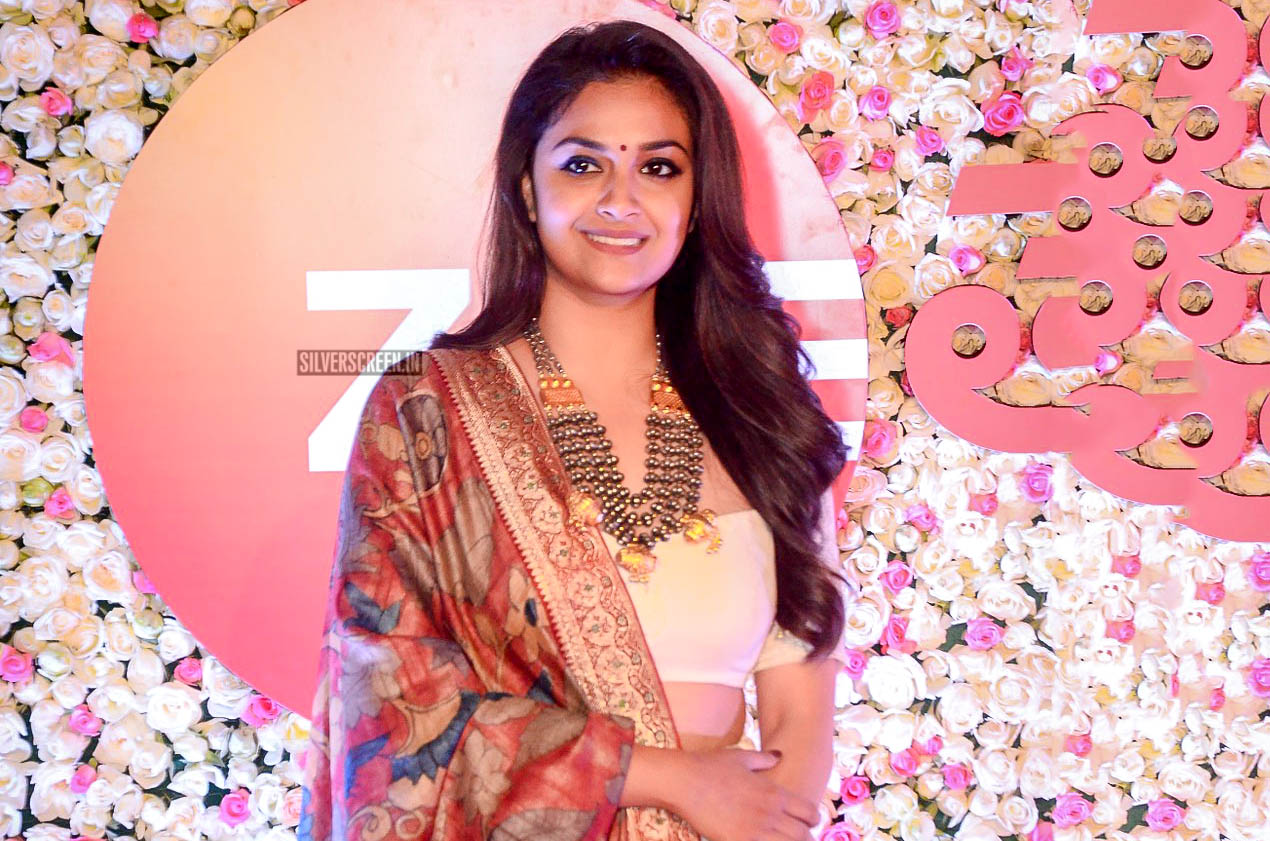*Contains spoilers*
Director: Shelly Chopra Dhar
Cast: Sonam Kapoor, Anil Kapoor, Rajkummar Rao, Regina Cassandra, Juhi Chawla
Composer: Rochak Kohli, Sanjay Wandrekar, Atul Raninga
In a scene in the latter half of Ek Ladki Ko Dekha Toh Aisa Laga, Balbir Choudhary (Anil Kapoor), a rich garment merchant from a Punjabi small-town, decides to approve his daughter’s alleged affair with a Muslim man, Sahil (Rajkummar Rao). As the first step towards bonding with the son-in-law-to-be, the amiable man starts learning Urdu, and jovially flaunts it at the family’s dinner table. This act appears absurd to others but not for old Choudhary who sincerely believes speaking a common language will bring people together.
Debutante director Shelly Chopra Dhar does something similar through the film. She uses a familiar language of melodrama, loud humour, song-and-dance sequences and cliched romantic moments to bring to the mainstream a romance that’s unfamiliar to the Bollywood audience. A pivotal scene in the film brilliantly subverts the vintage Bollywood meet-cute style (Sonam Kapoor’s prick white salwar in the scene might remind one of Manisha Koirala in 1942 A Love Story). This approach, interestingly, works in favor of the movie; even in the goofy climatic part where the characters stage a play seeking to evoke reactions from the audience watching it. The good-old Bollywood elements sugarcoat the bitter-pill Dhar has in store.
The film opens to a colourful wedding sequence – there are lights, colours, songs and jokes – a convenient point from where stories can digress to anywhere. A space where people gather, relationships are forged (Bollywood dramas such as Hum Aapke Hain Kaun), or broken, like how things turn out in Monsoon Wedding. At the wedding in ELKDTAL, we meet Choudhary and his daughter, Sweety (Sonam Kapoor), a shy girl who doesn’t look like a conventional Bollywood heroine. There is nothing extraordinary about the father-daughter duo at first sight. He has a penchant for cooking and has a nose for great dishes. She likes to make sketches. Slowly, in a beautifully consistent pace, the film unravels the deeply moving secrets that they hide in these seemingly simple hobbies.
Dhar’s film is, ultimately, about social boundaries of class and gender, and the people who are forced to live in loneliness or hide beneath the masks that they create over years to escape social ostracization. No one is a bad person in this film – not even the children who bully an effeminate classmate in a flashback sequence. Everyone is an outcome of an erratic societal system. You see that none of the lead characters turn out to be how their parents wanted them to be. Sahil’s ambition to be a true artist finds no respect from his father, a wealthy and influential Bollywood producer of nonsensical potboilers. The young man goes though bouts of self-doubt and heartbreaks, yet persists. Choudhary’s passion for cooking is not approved by his mother who believes kitchen isn’t a place for man. Sweety’s sexual orientation is a nightmare for most of the society. So she hides it in her diary, and spends life in utter loneliness that threatens to tear her apart.
What makes the film a winner is that it stays away from stereotypical scenes and makes an excellent portrait of the characters in their intimate moments in the most subtle manner. Like the brief moment during the opening sequence when Choudhary decides to try his hand at making a jalebi. It’s staged like an impromptu moment. Cooking is a natural extension to the man’s persona. And you see how this dilemma of Choudhary plays into the more serious crisis that Sweety faces. You see that she was a different person in her childhood. She was cheerful and liked to talk. The film lets you see Sweety’s transformation into a recluse in close-ups. Had Choudhary fought his mother to bend the conventional gender codes and stood up for himself, wouldn’t it have given his daughter some sense of belonging? In the most non-patronising tone, the film talks about the importance of people reaching out to each other.
Sonam Kapoor is surprisingly in her best element here. She delivers a powerful performance as Sweety who is, for most part of the film, like a caged bird, trying not to express the stress and grief that fills her heart. Rajkummar Rao gets the least etched out role in the film, as a writer whose talents we aren’t really sure about. Yet, the man easily brings to the screen a likability which has now become his forte. Juhi Chawla delivers a Johny Lever-esque role with aplomb, evoking that vintage Bollywood the film is founded on. And the best part of the film’s ensemble cast is Anil Kapoor who makes you see the complexities that an Indian parent faces. There are parts of his character arc that, you wish, were written better. Like the sudden change of heart that he undergoes after he meets Chawla’s Chatro.
Recommended
The film’s title is a playful nod to Bollywood’s evergreen love-at-first-sight stories, and to an era when love was deemed pure and unshakable, unlike the modern Bollywood love stories where the villains are no one else, but the lovers themselves (Love Aajkal, OK Jaanu) whose selfishness get in the way of a happily-ever-after ending. Here, Kuhu (Regina Cassandra), the woman Sweety finds love in, doesn’t get a character arc. There are brief scenes that establish her as the extrovert who helps Sweety get out of her self-made shell. The couples’ combination scenes are shot like a conventional romantic drama – the slow-motion shots, close-ups of laced fingers and shots of lovers hanging out in Delhi’s beautiful locales bathed in the evening sunlight. But the film doesn’t linger on the details of their relationship. And rightfully so. Ek Ladki Ko Dekha To Aisa Laga is about the rough road, and not the destination.
*****
The Ek Ladki Ko Dekha Toh Aisa Laga review is a Silverscreen original article. It was not paid for or commissioned by anyone associated with the movie. Silverscreen.in and its writers do not have any commercial relationship with movies that are reviewed on the site.



